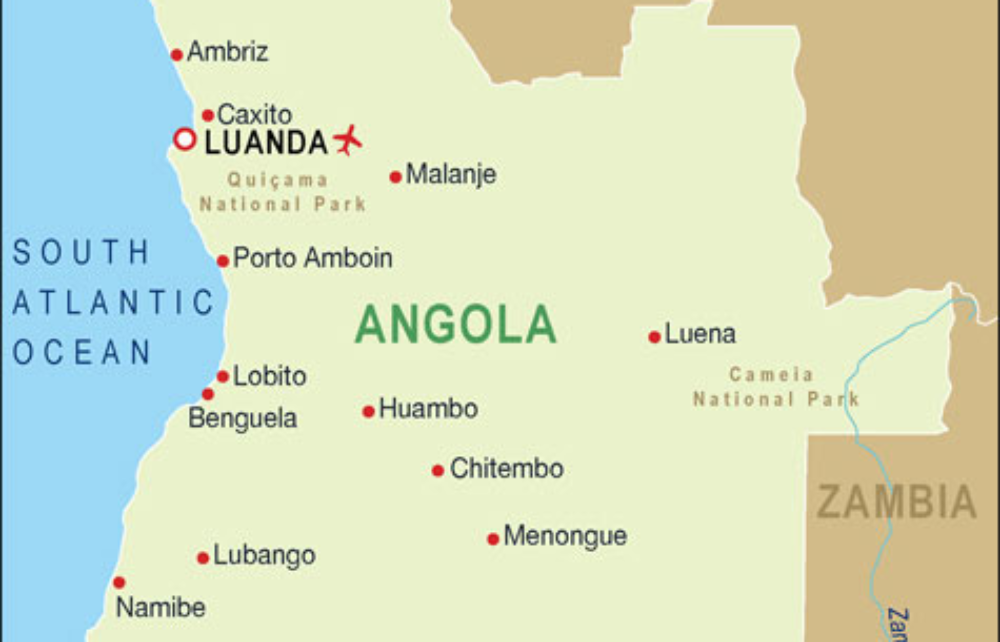
Angola’s main businesses
Angola, one of Africa’s largest and most resource-rich countries, has a diverse range of industries that drive its economy. However, oil dominates the landscape, contributing more than half of its GDP and over 90% of its export revenues. Beyond oil, Angola is also recognized for its mining sector, particularly diamonds. Here is an overview of Angola’s main businesses:
### 1. **Oil and Gas Industry**
Angola is the second-largest oil producer in Sub-Saharan Africa, following Nigeria. The oil sector is the backbone of Angola’s economy, accounting for more than half of its GDP. Major multinational oil companies such as **ExxonMobil**, **BP**, **Chevron**, and **TotalEnergies** operate in the country. Angola’s oil fields are located primarily offshore, in the Atlantic Ocean, and the deep-water blocks provide the highest yields. The state-owned company **Sonangol** plays a pivotal role in the oil industry, managing the extraction and distribution of oil. Additionally, Angola has large natural gas reserves, although it has yet to fully exploit this potential.
### 2. **Diamond Mining**
Angola is one of the world’s top diamond producers. The diamond industry contributes significantly to the country’s economy, especially in regions like Lunda Norte and Lunda Sul. **Endiama**, the state-owned diamond company, oversees much of the sector, though private companies such as **De Beers** and **Alrosa** are also heavily involved. Angola’s diamond reserves are both alluvial and kimberlite-based, providing a stable source of revenue. The mining industry is considered a key sector for economic diversification.
### 3. **Agriculture**
Despite being resource-rich, Angola’s agricultural potential remains underutilized. However, efforts are being made to revitalize the sector. Before its civil war (1975-2002), Angola was one of the world’s largest producers of crops like coffee, sisal, sugarcane, and cotton. The **Ministry of Agriculture** is spearheading initiatives to restore agricultural production, and the government is encouraging private investments in farming. Key crops grown today include maize, cassava, beans, bananas, and coffee. **Odebrecht**, a Brazilian construction company, has been a major player in building agricultural infrastructure.
### 4. **Fisheries**
With a coastline along the Atlantic Ocean, Angola has significant potential in the fisheries industry. The sector provides employment to a large portion of the population, especially in coastal communities. Angola’s fisheries are focused on both artisanal and industrial fishing, with an emphasis on species like sardines, tuna, and shrimp. However, the industry faces challenges such as illegal fishing and the need for modernization. Angola is working on improving the infrastructure for fish processing and exports to fully utilize its maritime resources.
### 5. **Construction and Infrastructure**
Post-war Angola has seen a construction boom, largely driven by oil revenues and government spending. Luanda, the capital city, is home to numerous infrastructure projects, from highways to skyscrapers. Companies like **Odebrecht** and **China International Fund** are heavily involved in building roads, airports, bridges, and housing complexes. Angola’s need for infrastructure development also extends to water, electricity, and telecommunications projects. This sector is expected to continue growing as the government focuses on diversifying the economy away from oil.
### 6. **Telecommunications**
The telecommunications sector in Angola is growing rapidly, especially with the expansion of mobile phone services. **Unitel**, the largest telecom company in Angola, is one of the most valuable companies in the country. **Movicel** and **Angola Telecom** are other key players. The sector is expanding beyond mobile services to include internet infrastructure, with the goal of improving digital access across the country. This expansion is particularly vital in rural areas, where connectivity is still limited.
### 7. **Banking and Finance**
Angola’s banking sector is expanding, driven by oil revenues and foreign investments. The **Banco Nacional de Angola** (BNA) is the country’s central bank and plays a critical role in regulating the banking system. Commercial banks such as **Banco de Fomento Angola** (BFA), **Banco Angolano de Investimentos** (BAI), and **Standard Bank Angola** are key players in the sector. Angola is working to modernize its banking infrastructure and improve transparency and financial inclusion. The country also attracts foreign investment, particularly in the oil and construction industries.
### 8. **Retail and Services**
With the rapid urbanization of Angola, especially in cities like Luanda, the retail and services sectors are growing. Shopping malls, supermarkets, and retail outlets are becoming more common. Companies such as **Shoprite**, **Kero**, and **Candando** are popular grocery and retail chains operating in the country. The services industry, including hospitality, education, and healthcare, is also experiencing growth, driven by a growing middle class and foreign expatriates working in the oil and construction sectors.
### 9. **Tourism**
While still in its nascent stages, Angola’s tourism industry has potential due to its natural beauty and cultural heritage. The government has identified tourism as a key area for diversification, particularly ecotourism and adventure tourism. National parks like **Kissama** and the **Iona Desert** offer potential attractions. However, infrastructure and visa restrictions currently limit tourism development, though ongoing efforts are in place to promote Angola as a tourist destination.
### Conclusion
Angola’s economy is largely dependent on oil, but the country is actively seeking to diversify into other sectors like agriculture, mining, and telecommunications. Major companies operating in Angola, both local and international, are helping to build a more resilient and diversified economic landscape. As Angola continues to invest in infrastructure and attract foreign investment, its non-oil sectors are expected to grow, creating more balanced economic growth in the future.



Leave a Reply